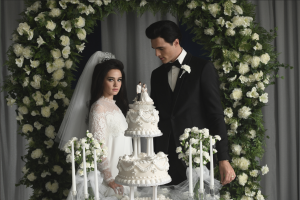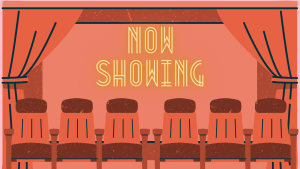Standards & Procedures
The Suffolk Journal adheres to the general standards of American newspapers, the AP stylebook and the code of ethics adopted by the Society of Professional Journalists, Sigma Delta Chi, in 1973.
“The Society of Professional Journalists, Sigma Delta Chi, believe the duty of journalist is to serve the truth. We believe the agencies of mass communication are carriers of public discussion and information, acting on their constitutional mandate and freedom to learn and report the facts. We believe in public Enlightenment as the forerunner of justice, and in our constitutional rule to seek the truth as part of the public’s right to know the truth We believe those responsibilities carry obligations that require journalists to perform with intelligence, objectivity, accuracy and fairness.”
Editorial Policies
- Editorial policy guides decisions regarding the newspaper’s content and conduct of writers and editors.
- The Editor-in-Chief has final authority on all recommendations of the Editors and has a prerogative to disregard any and all recommendations for content. However, the Editor-in-Chief is responsible for formulating editorials based on a consensus of Senior Editors. If a consensus cannot be reached, a vote will be taken. Any other editorials approved by the majority or reached by consensus will be honest, unsigned and considered the opinion of the paper. The Editor-in-Chief can overrule the Senior Editors and refuse to allow another torial topic to be addressed in the student newspaper.
- Section Editors shall be responsible for the content, including graphics and headlines, in their respective sections but all content must be approved by the Editor-in-Chief before publication.
- Contributors and Staff Writers shall be informed of The Suffolk Journal standards and practices and must agree to abide by them. The Editor-in-Chief will go over the standards and practices at staff meetings at the beginning of each semester, and individually to reporters and Editors who join the staff during the semesters. A copy of The Journal standards and practices shall be displayed in The Journal’s office at all times and posted for staff online. A copy of the AP stylebook shall be available at all times in The Journal office as required reference.
- Editors below the rank of Editor-in-Chief and Reporters who violate The Journal standards and practices will be subject to discipline ranging from formal reprimand, to suspension, to dismissal from The Journal. The discipline shall be decided by the Editor-in-Chief in consultation with any Advisers they see fit, based on the severity of the infraction and on intent.
Policy on Obscenities, Profanities, and Vulgarities
- The Suffolk Journal does not use obscenities or profanity except in rare cases when they are in a direct quotation or part of a formal name, and only if the Editor-in-Chief, in consultation with Senior Editors, determines a compelling reason for their inclusion and they are deemed necessary and important part of the story.
Policy on Conflict of Interest
- Journal writers are expected to recuse themselves from writing about any college group or organization in which they are involved, except in rare cases when approved in advance by the Editor-in-Chief. In any such case, the Reporter’s involvement is to be clearly conveyed to the reader.
Editorial Independence and Advertising
- The Suffolk Journal is an editorial independent, student-edited and written publication. The Editors and writers have sole responsibility for the content of The Journal. However, The Journal will have both a faculty and / or professional journalist adviser and a media adviser. The media adviser shall be appointed by the Office of Student Leadership and Involvement. The faculty or professional journalist adviser shall be drawn from the faculty or, in the event a faculty member is not available or willing to take the appointment, from the professional. He or she shall be named in consultation with the Department of Communication and Journalism and Student Life. The Editor-in-Chief and staff shall consult regularly with the faculty or professional adviser during publication times that is to be interpreted as weekly with few exceptions. The Editor-in-Chief shall maintain regular contact with the mediator for consultation on matters relating to budget, supplies, computer and online programs and General University requirements for Media Groups.
Selection of the Editor-in-Chief
- Procedures for the Editor-in-Chief are described in the Suffolk University joint statement of rights, freedoms and responsibilities of students which is published in the undergraduate student handbook and details eligibility requirements, selection process and procedures for handling grievances or replacement of the Editor-in-Chief.
Correction Policy
- Never knowingly publishes inaccuracies. If an error is found, The Journal is obligated to correct the error as soon as possible. Corrections or retractions should be printed on their own or underneath briefs in the News section, and at the bottom of the article online.
Plagiarism
- Plagiarism is prohibited and is illegal if the material is copyright protected. Plagiarism is defined as the word forward duplication of another person’s writings, art work, research and findings, with or without their permission. Information obtained from a published work must be independently verified before it can be reported in a new, original story. All information should be attributed.
Off the record
- In every situation, the Reporter can find another way to get the story. Agreeing to go off the record usually ends up limiting the Reporter and the paper in the pursuit of a story. After the interview, you are not ethically bound to keep the material out-of-print if you did not agree to do so. Be very careful with this. You do not want to lose a valuable Source over a trivial piece of information. If you did agree to go off the record, you are not to use the information in the sense of naming your source.
- However, in some rare instances, it will be necessary for a Reporter to protect their sources. A Reporter must, however, notify the Editor of the names of the anonymous sources. A source must be made to understand that the decision to protect a source lies with an Editor, not solely with the Reporter. A Reporter should not leave any notes or other materials in a newsroom that might contain any confidential information or names of confidential sources connected with a story.
Racism, sexism and diversity
- Does not identify the race or sexual orientation of anyone in an article unless it is relevant to a story. Racial stereotypes and homophobic, transphobic and sexist remarks are generally not permitted in The Journal unless included in a quote.
- It is important to share ideas and learn from multiple perspectives. However, racism, homophobia, transphobia, ableism, sexism and other forms of bigotry should not be represented in this paper. The only exception will be if it is part of coverage from a news event where this is essential to the story.
- It is required that when interviewing for a story, all Reporters must ask the pronouns of each person that they will include in a story to ensure respect among the diverse Suffolk community.
- The Suffolk Journal will attend a diversity and inclusion training at least once in the Fall semester of each academic year and as frequently as needed.
- The Suffolk Journal is committed to diversity and inclusion and believes that it is a crucial part of fulfilling our mission of reporting the truth in today’s world. As both a media group, as well as a student organization on campus, The Journal has committed to having a staff that directly reflects the diversity of our readers which is both the Suffolk community and greater Boston area. To enhance our efficiency and effectiveness of telling the truth and producing the best possible journalism on campus, as well as enhance the quality of our decision-making as a news team, we are committed to having a diverse staff. A diverse staff would mean that an inclusive work environment encourages different perspectives to be represented and be given fair treatment. We welcome all experiences and viewpoints, including nationality, culture, educational and professional backgrounds, gender, race, ethnicity, sexual orientation, expression, disability, gender identity, age, social class and religion. All staff members are respected on all levels of the organization.
Prior Review
- A Reporter should never agree to let a subject read a story before publication, regardless of the arguments that a subject makes. A Reporter should refer all such subjects to the Editor-in-Chief, who has the ultimate authority to allow reading. If there are any questions about the story or any facts, then the Reporter should check back with a subject prior to publication to confirm a material.
Additional standards and procedures coming soon. Please contact the Editor-in-Chief Shealagh Sullivan for additional questions by emailing [email protected].






